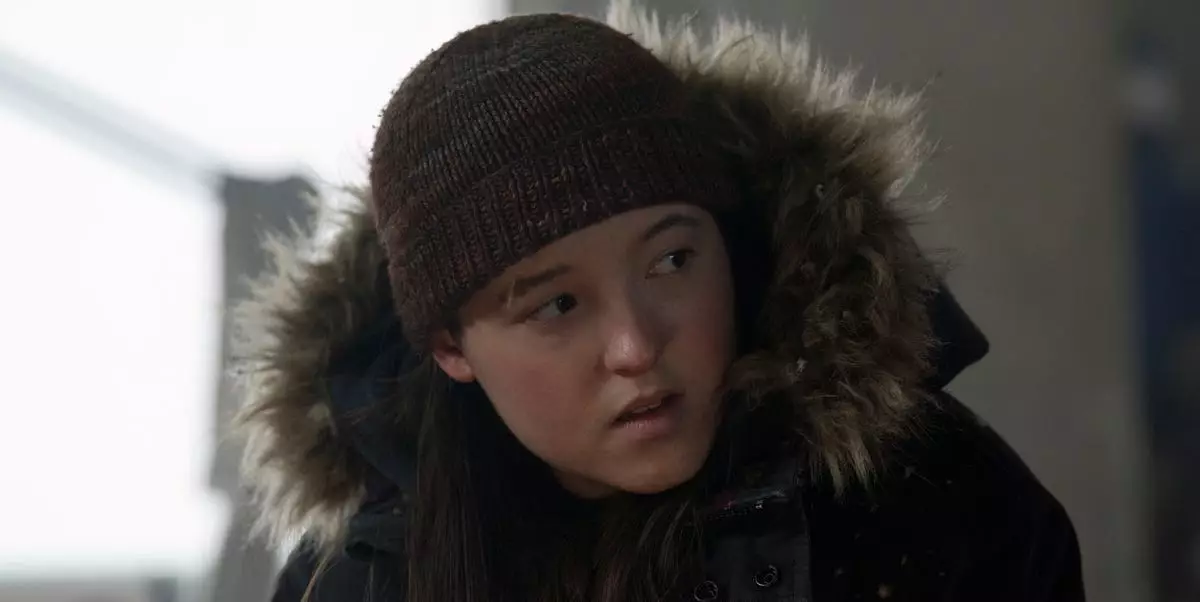In a storytelling landscape often dominated by spectacular visuals and riveting plots, the emotive power of music takes on a compelling role that can elevate a moment from good to unforgettable. The latest episode of HBO’s adaptation of “The Last of Us,” titled “Through the Valley,” provides a poignant example of how a song can enrich narrative depth and resonate profoundly with the audience. The episode’s climax, marked by the hauntingly beautiful performance of Ashley Johnson, is not only the conclusion of a tragic arc but also an exploration of grief, loss, and the human condition.
In the show, Johnson, who originally voiced Ellie in the acclaimed video game series, sings the titular song during an agonizing moment as Ellie mourns the devastating loss of her father figure, Joel. This intricate layering of music and emotion plays a key role in making the gaming experience translate powerfully into television. The choice of “Through the Valley” serves as a purposeful vehicle for exploring the depth of Ellie’s sorrow and resilience, enriching the narrative’s exploration of familial bonds in a dystopian world.
A Symbolic Cameo: More Than Just a Song
It’s worth noting that this episode marks Ashley Johnson’s second appearance within this adaptation, a clever move by series creators Craig Mazin and Neil Druckmann that adds layers of complexity to both the character and the narrative. By featuring Johnson as Ellie’s mother in season one, the show solidifies a thematic continuity while bridging the emotional undertones of familial love and loss. The emotional stakes are escalated with the realization that Ellie is not just mourning the absence of a surrogate father but is also connected to a lineage of love that preceded her.
As Ellie faces the desolation of Joel’s death, the show artfully captures the complexity of grief, as individuals grapple with not only the pain of loss but also the ramifications it carries into the future. The somber notes of “Through the Valley” serve as a haunting reminder of what has been lost, echoing through the desolate landscapes of Jackson, Wyoming, which also bears the weight of its own traumas from a harrowing infected attack.
The Artistic Vision Behind the Song Choice
The episode’s creators discuss how the inclusion of “Through the Valley” was not a haphazard decision; it was an artistically curated choice steeped in significance. The origin story of the song is itself a meta-commentary on the thematic elements of the game—in particular, an introspective journey through loss and survival, further enhanced by Shawn James’ original composition. By choosing a song that has been instrumentally tied to the universe of “The Last of Us,” the creators effectively invoke a sense of nostalgia, making the moment both relatable and universally heart-wrenching.
Druckmann’s narrative vision was to find a song that encapsulates the brutality and beauty inherent within The Last of Us’ story. The stark lyrics encapsulate not just the sorrow of Ellie’s current plight but reflect the overarching themes of love, connection, and inevitable loss that run throughout the series. It serves as an emotional climax that lingers long after the episode concludes—forcing viewers to confront their own experiences with grief while exploring the boundaries of love amidst despair.
Curtain Call: The Last of Us and Its Universal Call to Empathy
In the end, “Through the Valley” serves as more than just an auditory backdrop; it becomes a character in its own right, encapsulating the very essence of what it means to mourn. The juxtaposition of light and dark, the present moment and memories past, underpin the narrative’s weighty contemplation of existence within a broken world. The lingering power of Johnson’s voice invites viewers into a shared space of vulnerability where personal pain is universalized.
As we reflect on this heartbreaking yet stunning episode, we are reminded of the power of storytelling—both visual and musical. The Last of Us adeptly showcases that within the valleys of tragedy, there also exists a profound connection among its characters and to the audience, threading our collective experiences of love, loss, and ultimately, the human spirit’s capacity to endure. While Ellie may find herself in a valley of despair, within those notes lies the potential for hope, healing, and an acknowledgment that no one remains untouched by loss.

